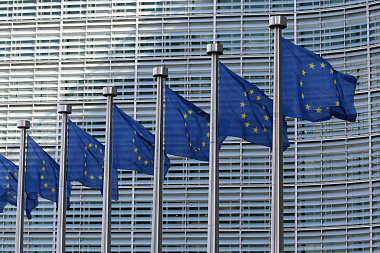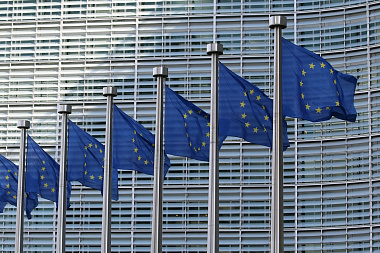Below we examine and analyse the most significant provisions of the Law in more detail.
Resolutions on the appointment of the general director of a limited liability company (“LLC”) will need to be certified by a notary in all cases
Starting from 1 September 2024, it will be necessary to notarise the fact that a resolution to elect/appoint the sole executive body of an LLC (“CEO”) has been adopted. An application to the Federal Tax Service of the Russian Federation (“FTS”) requesting to record the relevant changes to the Unified State Register of Legal Entities will also be filed by the notary who has certified such resolution.Previously, the law allowed LLC participants to waive, by a unanimous resolution of the general meeting of participants or by the charter, the requirement to notarise resolutions of the general meeting of its participants (including resolutions on the CEO’s election/appointment), except for resolutions to increase the charter capital of an LLC, which requiredLLC Law, article 17, clause 3 notary certification in all cases. The application to have the change of the CEO recorded on the Unified State Register of Legal Entities was to be personally signed by the person appointed as the new CEO.
The amendments made by the Law do not allow the use of any other procedure to confirm the resolution on the election/appointment of the CEO, ie, such resolution always requires notarisation and will be null and void if such requirement is not complied with. Notary certification is required not only for resolutions of general meetings of participants on the election/appointment of the CEO, but also decisions of the collegial governing body (board of directors) of an LLC on such matter, if it falls within the competence of such body.
This rule will not apply to credit organisations,
According to the explanatory note to the Law, the introduction of this requirement was primarily driven by the lawmakers’ desire to exclude fraudulent schemes related to the illegal change of the CEOs. As stated by the Federal Notarial Chamber of the Russian Federation (“FNC”), the use of such schemes is one of the most long-standing problems in the corporate sphere: for example, fraudsters forge the minutes of the general meeting of participants and appoint a front person as the CEO, who subsequently goes to a notary to authenticate his/her signature on the application filed with the FTS and requesting to record the relevant changes on the Unified State Register of Legal Entities.
The requirement to notarise resolutions on the CEO’s election/appointment should, according to the legislator’s idea, minimise such risks, as the notary, when certifying resolutions of meetings, would check the identity of the participants adopting such resolution and their authority to do so.
However, such requirement will also increase the costs for businesses to notarise such resolutions, including in terms of the time needed to adopt such resolutions. In this connection, businesses should be aware of the possibility introduced by the Law to have general meeting resolutions certified by a notary remotely, as described in more detail in the next paragraph of this overview.
Notaries will be able to certify resolutions of general meetings remotely
Starting from 1 September 2024, it will be possible to have resolutions of general meetings certified by a notary remotely, similar to the remote certification procedure already in place for certain transactions.According to the amendments to the Fundamentals of Laws on Notaries of the Russian Federation
FNC notes that this form of notarising transactions (such as sale and purchase of a participation interest in the charter capital of an LLC, sale and purchase of immovable property, etc) is generally much needed by businesses. The advantage is that notarial certification is possible even if the parties are located in different cities.
We believe that the newly introduced possibility of remote notarial certification of resolutions of general meetings should also receive positive feedback from the business community, and this form of notarial certification will be much in demand in practice. Specifically, the introduction of such form of certifying resolutions is particularly important in the context of the newly introduced requirement of mandatory notarisation of resolutions on the election/appointment of the CEO in LLCs, since in practice mandatory notarisation of such decisions is fraught organisational difficulties for businesses, for example, when company participants are abroad and cannot visit a Russian notary.
However, the Fundamentals of Laws on Notaries have not been similarly amended to permit notaries to remotely certify resolutions of sole participants of companies. Such notarial act still requires visiting a notary.
Notice of the creation of a liquidation commission (or the appointment of a liquidator) will be filed with the FTS by a notary
Starting from 1 September 2024, a notary who authenticates an applicant’s signature on a notice of the creation of a liquidation commission (or the appointment of a liquidator) will be required to file such notice with the FTS in an electronic form (no later than the close of business).Joint stock companies will have the right to suspend dividend payments and the circulation of information on general meetings of shareholders to “lost shareholders”
From the date of the official publication of the Law, ie, from 8 August 2024, new provisions entered into force which allow joint stock companies (“JSCs”) to suspend the payment of dividends and the circulation of information on general meetings of shareholders to so-called “lost shareholders”, ie, shareholders whose details are missing and who have not exercised their rights as shareholders over a long period of time.There are various reasons why shareholders become “lost”: this may be due to the death of an individual shareholder or the liquidation of a corporate shareholder, where the title to such shareholder’s shares is not properly registered by the shareholder’s legal successors. In addition, the reason behind the significant number of “lost shareholders” is the privatisation of the 1990s, the partial transfer of enterprises to employee ownership and the creation of a dispersed ownership structure at some companies.
Further, the problem of lost shareholders has been significantly aggravated in recent years by the mass exodus of foreign persons from the Russian market, including where such shareholders refuse to take any active steps to manage Russian companies.
In a recent caseRuling of the Supreme Court of the Russian Federation
This problem is partially dealt with by the adoption of Federal Law No. 470-FZ dated 4 August 2023 “On the Specifics of Regulation of Corporate Relations in Business Companies that are Economically Significant Organisations”, where the corporate rights of foreign holding companies that are participants (or shareholders) of Russian business companies may be suspended by a court decision. However, the provisions of this law are only applicable to a limited number of large companies which meet certain criteria and are included on the list approved by the Government of the Russian Federation. Please read about this law and amendments to it in our earlier legal updates of 22 July 2023, 19 December 2023 and 25 June 2024.
The explanatory note to the Law stated that, according to various data, about six million shareholders could be categorised as “lost shareholders.” As a result, JSCs incur high costs associated with (i) sending notices of general meetings of shareholders, ballots and other information to the postal addresses of “lost shareholders” and (ii) paying dividends to such shareholders by postal remittances. The Law was originally drafted precisely to address the “lost shareholders” issue.
It is expected that these amendments will help JSCs reduce their costs of sending information and paying dividends to lost shareholders.
- Suspension of dividend payment
A joint stock company (“JSC”) may suspend the payment of dividends to shareholders provided that the following conditions are simultaneously met:
(i) for at least two consecutive years immediately preceding the date on which the decision to suspend the payment of dividends is taken, the JSC has refunded the funds transferred to such shareholders as dividends;
(ii) the transfer of funds to the shareholder as dividends has been made at least twice during the period referred to in clause (i) above; and
(iii) five business days prior to the date of the adoption of the decision to suspend payment of dividends, the registrar of the JSC has not received up-to-date information on the shareholder required for the payment of dividends in cash, or the shareholder’s application to confirm the relevance of the information contained in the JSC’s shareholder register.
The decision to suspend the payment of dividends is made by the Board of Directors, and in anon-public JSC — by the Board of Directors or other competent body. In the event of such a decision, the JSC shall:
(i) ensure that records are kept of the shareholders in respect of whom the payment of dividends has been suspended; and
(ii) disclose this information in the form of a statement of a material fact in accordance with the requirements of the securities laws of the Russian Federation.
Payment of dividends to a shareholder shall be resumed without the need of an additional resolution of the JSC’s bodies on such resumption if, as at the date on which the persons entitled to receive dividends are determined:
(i) up-to-date information on the shareholder required for payment of dividends (including information on the postal address of the individual shareholder or information on his/her bank details) has been entered in the JSC’s shareholder register; or
(ii) the registrar of the JSC has received a request from a shareholder to confirm the relevance of the information contained in the company’s register of shareholders.
- Suspension of sending information about the general meeting of shareholders and/or voting ballots (“Information”)
A JSC may suspend the sending of Information to “lost” shareholders if the following conditions are simultaneously met:
(i) for at least two consecutive years immediately preceding the date of the decision to suspend the sending of the Information, all communications containing the Information have been returned to the JSC;
(ii) the Information has been sent at least twice during the period referred to in paragraph (i) above;
(iii) the last notice of the meeting or absentee voting contained a warning that the sending of the Information at the postal address could be suspended and a notice of the shareholder’s right to send to the registrar of the JSC up-to-date information about the shareholder’s postal address; and
(iv) five business days prior to the date of the decision to suspend the sending of the Information, the registrar of the JSC has not received up-to-date information about the shareholder required to send the Information to the shareholder’s postal address or the shareholder’s application for confirmation of the relevance of the information contained in the JSC’s shareholder register.
As in the case of the suspension of a dividend payment, a JSC is also obliged to keep records of shareholders in respect of whom the Information was suspended and disclose this information in the form of a statement of a material fact.
The resumption of sending the Information to the shareholder will occur upon the occurrence of similar circumstances as those envisaged for the resumption of a dividend payment (see point 1 above).
Anon-public JSC may provide in its charter that the provisions on the right to suspend the payment of dividends and the sending of information described below will not apply to it.
Innovations regarding the forms of holding general meetings of participants (shareholders)
The Law also introduces requirements for the procedure for holding general meetings of participants (shareholders) with remote participation or in combination with absentee voting.- Holding meetings of the general meeting of LLC participants (JSC shareholders) with remote participation
The provisions of the Law set out in Federal Law No. 208-FZ “On Joint Stock Companies” dated 26 December 1995 (“JSC Law”) and the LLC Law establish the possibility of holding general meetings of participants (shareholders) remotely by electronic or other technical means (“Absentee Meeting”), provided that methods are used that (i) enable the person participating in the Absentee Meeting to be reliably identified and (ii) enable such person to participate in the discussion of agenda items and vote on them.
The current version of the Civil Code of the Russian Federation (“Russian Civil Code”) already providesClause 1 of article 181.2 of the Russian Civil Code for the possibility of holding general meetings of participants (shareholders) remotely. The procedure for holding such absentee meetings was to be determined by law, a resolution of participants (shareholders) or the company’s charter. The provisions of the Law establish the abovementioned possibility in the LLC Law and the JSC Law, as well as introduce new requirements for the procedure for holding an Absentee Meeting, including methods of identifying persons participating in it.
The rules on holding Absentee Meetings will enter into force on 1 March 2025, and the provisions regulating the methods of identifying persons participating in an Absentee Meeting will enter into force on 1 September 2027.
The Law contains the following requirements for the procedure for holding an Absentee Meeting: - an Absentee Meeting must be held with the possibility of being present at the place where it is to be held, but the charter of a company may provide for holding an Absentee Meeting without determining the place where it is to be held and the possibility of being present at such a place;
- real-time broadcasting of images and sound should be made when holding an Absentee Meeting. The company shall keep a record of such broadcast together with the minutes of the general meeting of participants (shareholders);
- in the case of an Absentee Meeting, the notice of holding it shall also contain information on the procedure for gaining access to remote participation, including the means of identifying persons participating in the Absentee Meeting.
As a rule, such identification will be performed by means of an enhanced qualified electronic signature in the presence of a valid qualified electronic signature verification key certificate. Alternatively, the company’s charter or bylaws may establish the following methods of identification:
(i) an enhancednon-qualified electronic signature that fulfils certain requirements; or
(ii) by identification or authentication of an individual using his/her personal data obtained from the Unified Identification and Authentication System (“Gosuslugi”); and
- in the event that, due to technical failures, it becomes impossible to hold the Absentee Meeting, such Absentee Meeting shall be deemed cancelled and the relevant failures shall be indicated in the minutes of the general meeting of participants (shareholders).
- Holding general meetings of participants of LLCs (shareholders of JSCs) in combination with absentee voting
The Law also stipulates in the LLC Law and JSC Law the possibility of holding general meetings of participants (shareholders) in combination with absentee voting and introduces certain requirements for such general meetings. These amendments will enter into force on 1 March 2025.
The current wording of the Russian Civil Code already providesClause 1.2 of article 181.2 of the Russian Civil Code for the possibility of combining voting at a meeting and absentee voting (if provided for by law, by unanimous decision of participants (shareholders) or by the charter). The Law establishes this form of general meetings in the LLC Law and the JSC Law, and also specifies the procedure for holding such meetings, namely: - when holding a meeting of participants (shareholders) combined with absentee voting, participants (shareholders) who voted in absentia (by filling in voting ballots) are entitled to participate in such general meeting without the possibility of voting;
- for JSCs, there are cases in which voting at general meetings of shareholders is necessarily combined with absentee voting, namely:
(i) in case of a general meeting of shareholders of a public JSC;
(ii) in case of a general meeting of shareholders of anon-public JSC with the number of shareholders owning voting shares of 50 or more;
(iii) if the charter of anon-public JSC provides for combining voting at a general meeting of shareholders with absentee voting. The Law also provides for the possibility of holding a meeting with remote participation, as well as by combining the meeting with absentee voting (unless otherwise provided for by the internal documents or the charter of the company), for a meeting of the board of directors of JSCs and LLCs, as well as for meetings of the collegial executive body of JSCs.
- Miscellaneous
The Law also introduces new provisions into the LLC Law regulating the procedure for holding meetings of the Board of Directors, the quorum for such meetings (which must be at least half of the elected members of the Board of Directors and may be increased by the charter), and the requirements for the minutes of the Board of Directors based on the results of the meeting. In addition, most of the other amendments introduced by the Law generally do not contain any significant innovations within the framework of the existing corporate law provisions and are mainly aimed at clarifying the current legislative wordings.
General conclusions
Based on the results of the review of the amendments contained in the Law, we can conclude that they cover a fairly wide range of corporate law issues: for example, procedures for suspending the payment of dividends to “lost shareholders” and requirements for participants (shareholders) to hold general meetings remotely or combined with absentee voting were introduced, as well as requirements for the mandatory notarisation of the decision on the election (appointment) of the sole executive body of the LLC, etc, were introduced.In general, it may be noted that these amendments are mostly aimed at clarifying the existing legislative provisions, simplifying certain corporate actions for the company (for example, in terms of the rules on “lost shareholders”), as well as increasing the transparency of corporate procedures for participants in civil turnover.
We will follow the development of law enforcement practice in connection with the adoption of these amendments.









